BYD Seal U VS Porsche Taycan – Specs, Efficiency & Price Comparison
Which model is the better choice – the BYD Seal U or the Porsche Taycan? We compare performance (324 HP vs 1034 HP), boot capacity (552 L vs 407 L), efficiency (19.90 kWh0.90 L vs 16.70 kWh), and of course, the price (33300 £ vs 87000 £).
Find out now which car fits your needs better!
The BYD Seal U (SUV) is powered by a Plugin Hybrid or Electric engine and comes with a Automatic transmission. In comparison, the Porsche Taycan (Coupe) features a Electric engine and a Automatic gearbox.
When it comes to boot capacity, the BYD Seal U offers 552 L, while the Porsche Taycan provides 407 L – depending on what matters most to you. If you’re looking for more power, you’ll need to decide whether the 324 HP of the BYD Seal U or the 1034 HP of the Porsche Taycan suits your needs better.
There are also differences in efficiency: 19.90 kWh0.90 L vs 16.70 kWh. In terms of price, the BYD Seal U starts at 33300 £, while the Porsche Taycan is available from 87000 £.
Compare all the key specs now and find out which model fits your lifestyle best!
BYD Seal U
The BYD Seal U presents itself as a sophisticated addition to the electric vehicle market, blending sleek design with cutting-edge technology. Its modern aesthetic is complemented by a spacious interior, offering both comfort and functionality for drivers and passengers alike. With advanced features prioritising sustainability and performance, it represents a bold step forward in eco-friendly motoring.
details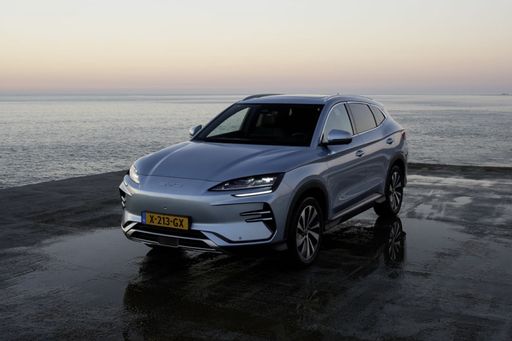 @ press.bydauto.be
@ press.bydauto.be
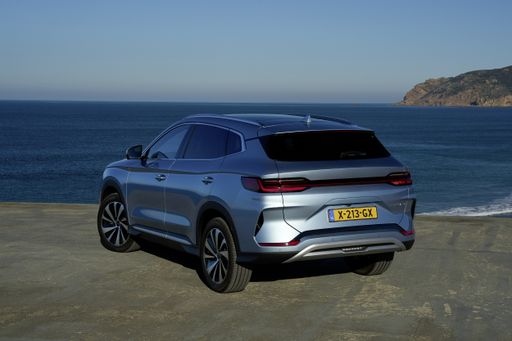 @ press.bydauto.be
@ press.bydauto.be
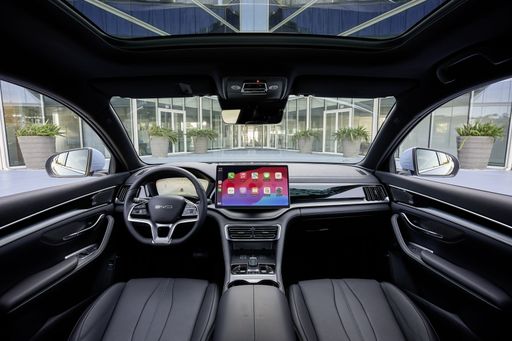 @ press.bydauto.be
@ press.bydauto.be
Porsche Taycan
The Porsche Taycan redefines the electric vehicle landscape with its stunning design and thrilling performance. With its smooth lines and athletic stance, this four-door sports car captures attention while delivering an exhilarating driving experience. Inside, the Taycan boasts a luxurious and high-tech interior, seamlessly blending comfort and cutting-edge innovation.
details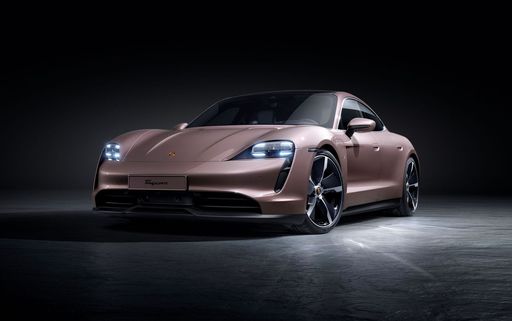 @ Porsche
@ Porsche
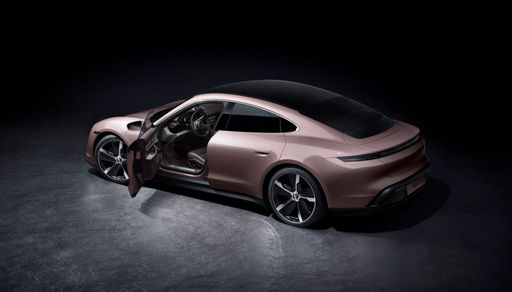 @ Porsche
@ Porsche
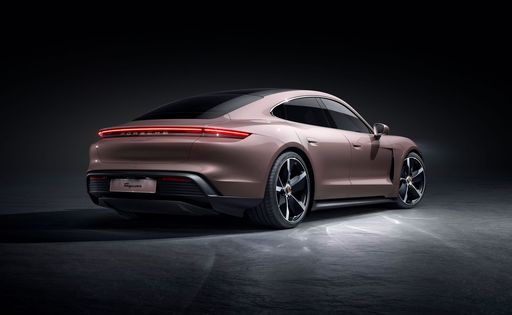 @ Porsche
@ Porsche
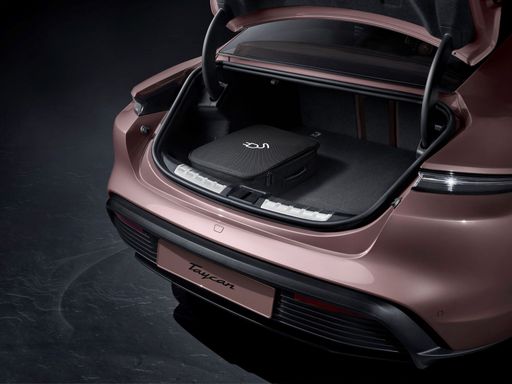 @ Porsche
@ Porsche
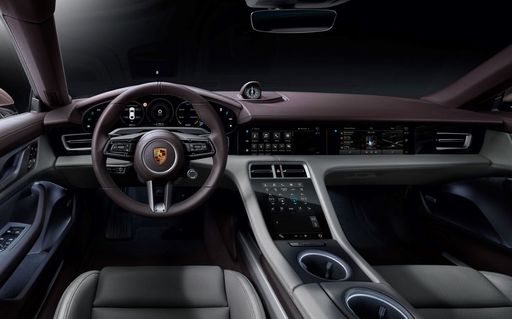 @ Porsche
@ Porsche

|

|
|
|
|
Costs and Consumption |
|
|---|---|
|
Price
33300 - 38600 £
|
Price
87000 - 205700 £
|
|
Consumption L/100km
0.9 - 1.2 L
|
Consumption L/100km
-
|
|
Consumption kWh/100km
19.9 - 20.5 kWh
|
Consumption kWh/100km
16.7 - 20.6 kWh
|
|
Electric Range
70 - 500 km
|
Electric Range
555 - 680 km
|
|
Battery Capacity
-
|
Battery Capacity
82.3 - 97 kWh
|
|
co2
0 - 26 g/km
|
co2
0 g/km
|
|
Fuel tank capacity
60 L
|
Fuel tank capacity
-
|
Dimensions and Body |
|
|---|---|
|
Body Type
SUV
|
Body Type
Coupe
|
|
Seats
5
|
Seats
4
|
|
Doors
5
|
Doors
4
|
|
Curb weight
1940 - 2147 kg
|
Curb weight
2165 - 2370 kg
|
|
Trunk capacity
425 - 552 L
|
Trunk capacity
326 - 407 L
|
|
Length
4775 - 4785 mm
|
Length
4962 - 4968 mm
|
|
Width
1890 mm
|
Width
1966 - 1998 mm
|
|
Height
1668 - 1670 mm
|
Height
1378 - 1381 mm
|
|
Payload
410 kg
|
Payload
175 - 635 kg
|
Engine and Performance |
|
|---|---|
|
Engine Type
Plugin Hybrid, Electric
|
Engine Type
Electric
|
|
Transmission
Automatic
|
Transmission
Automatic
|
|
Transmission Detail
CVT, Reduction Gearbox
|
Transmission Detail
Reduction Gearbox
|
|
Drive Type
Front-Wheel Drive, All-Wheel Drive
|
Drive Type
Rear-Wheel Drive, All-Wheel Drive
|
|
Power HP
218 - 324 HP
|
Power HP
408 - 1034 HP
|
|
Acceleration 0-100km/h
5.9 - 9.6 s
|
Acceleration 0-100km/h
2.2 - 4.8 s
|
|
Max Speed
170 - 180 km/h
|
Max Speed
230 - 305 km/h
|
|
Torque
300 - 550 Nm
|
Torque
410 - 1340 Nm
|
|
Number of Cylinders
4
|
Number of Cylinders
-
|
|
Power kW
160 - 238 kW
|
Power kW
300 - 760 kW
|
|
Engine capacity
1497 - 1498 cm3
|
Engine capacity
-
|
General |
|
|---|---|
|
Model Year
2024
|
Model Year
2024 - 2025
|
|
CO2 Efficiency Class
B, A
|
CO2 Efficiency Class
A
|
|
Brand
BYD
|
Brand
Porsche
|
BYD Seal U
An Introduction to the BYD Seal U
The BYD Seal U is a groundbreaking entrant in the automotive market, serving as a testament to the brand's commitment to innovative sustainable mobility solutions. Designed as an eco-friendly SUV, the Seal U is available in both Plug-In Hybrid and fully Electric variants, providing consumers with choices that align with their driving habits and environmental concerns.
Innovative Powertrains and Performance
At the heart of the BYD Seal U lies its forward-thinking powertrains. The Plug-In Hybrid model combines a finely tuned 1497 - 1498 cm³, 4-cylinder engine with an electric motor to deliver a total power output of up to 324 PS. The hybrid system is capable of achieving a frugal 0.9 - 1.2 litres per 100 km fuel consumption, though it does not compromise on performance with an impressive acceleration from 0 to 100 km/h in 5.9 - 9.6 seconds.
In the fully Electric variant, the Seal U boasts a substantial performance with up to 238 kW of power, ensuring a brisk ride while providing a clean and silent driving experience. With two battery options offering ranges from 420 km to an expansive 500 km, this electric SUV proves to be a formidable contender for those who prioritise long-distance electric mobility.
State-of-the-Art Design and Comfort
The Seal U's design embodies a sophisticated blend of style and function. Its commanding SUV silhouette, measuring between 4775 - 4785 mm in length, conveys both elegance and robustness. Inside, the vehicle offers room for five passengers, ensuring comfort with plush seating and a spacious interior that's accentuated by advanced ergonomic design and quality materials.
The boot space ranges from 425 to 552 litres, accommodating the demands of family trips or sizable grocery hauls with ease. In terms of technology, the Seal U does not disappoint, featuring an intuitive infotainment system that connects seamlessly with mobile devices, ensuring entertainment and connectivity on the go.
Advanced Safety Features
Safety is paramount for BYD, and the Seal U incorporates a suite of advanced safety technologies to protect its passengers. Systems such as adaptive cruise control, lane-keeping assist, and automatic emergency braking work in concert to enhance the driving experience while providing peace of mind. These features are complemented by a robust body structure designed to absorb and dissipate impact energy efficiently.
Environmentally Conscious Engineering
The BYD Seal U sets a new standard in eco-friendly automotive design. Its Plug-In Hybrid and Electric models both earn impressive CO2 efficiency ratings, ranging from class A to B, thanks to technologies that significantly reduce emissions. Additionally, its Plug-In Hybrid system enables an all-electric range up to 80 km, allowing for short day-to-day trips purely on electric power and making it an ideal choice for environmentally conscious drivers.
Pricing and Model Year
The BYD Seal U is accessible to a wide range of budgets with prices beginning at €38,900 and extending to €44,990, depending on specifications and chosen trim levels such as Boost CVT, Comfort, Design, and Design AWD CVT. As we look to the future, the 2024 model year is poised to continue BYD's tradition of excellence, bringing advanced engineering and sustainable practices to drivers eager for innovation and efficiency.
Porsche Taycan
Unveiling the Porsche Taycan: A Leap into the Future
The Porsche Taycan has established itself as a pioneering force in the realm of electric vehicles, merging luxury with performance in a way few others can boast. With stunning aesthetics and groundbreaking technologies, the Taycan stands as a testament to Porsche's commitment to innovation in the automotive world.
Power and Performance: A New Era for Electric Driving
At the heart of the Taycan's allure lies its remarkable performance figures. The model is available in several configurations, with power ranging from 408 HP in the entry-level variant to an astonishing 1,034 HP in the Turbo GT edition. This kind of power translates directly into exhilarating acceleration, with the Taycan Turbo GT achieving 0-100 km/h in just 2.2 seconds. Even the more modestly powered variants offer thrilling performance while managing to retain daily usability.
The Taycan's drive system includes options for both rear-wheel drive and all-wheel drive, providing flexibility based on driver preference. This versatile drivetrain couples impeccably with Porsche's advanced electric motors, ensuring optimal performance under various conditions.
Battery Technology and Range: Where Engineering Meets Efficiency
The Taycan ships with sophisticated battery technology that caters to both performance and practicality, with capacities ranging from 82.3 kWh to 97 kWh. The Performance Battery Plus variant extends the electric range to an impressive 680 km, while even the more potent Turbo and Turbo S models manage to offer about 634 km of range, ensuring that drivers can enjoy spirited drives without the constant worry of recharging.
Moreover, the efficiency of the Taycan is notable, with consumption figures around 16.7 to 20.6 kWh per 100 km. This blend of efficiency and power redefines how one perceives electric mobility.
Charging Innovations: Powering Up Fast
Charging innovations further enhance the Taycan’s appeal. With a maximum charging capacity of 270 kW, the Taycan can achieve an 80% charge in just about 22.5 minutes under optimal conditions. This means less time tethered to a charging station and more time enjoying the open road.
Cutting-edge Technology: A Driver’s Digital Playground
Inside, the Taycan is equipped with cutting-edge technology that ensures both driver engagement and comfort. The dual-screen cockpit integrates a 10.9-inch infotainment display alongside a 10.9-inch passenger display, offering intuitive access to navigation, entertainment, and vehicle settings.
Porsche’s innovative approach extends to advanced driver assistance systems, enhancing safety while maintaining the driving experience characteristic of the brand. Features like adaptive cruise control, lane-keeping assistant, and parking aids seamlessly integrate to assist drivers without compromising the thrill of driving a Porsche.
Design That Turns Heads
The Porsche Taycan is not just about performance and technology; it is also a design statement. With sleek lines, aggressive stance, and the signature Porsche front fascia, the Taycan conveys an unmistakable aura of luxury and sportiness. The aerodynamic profile plays an essential role in its efficiency and performance, showcasing Porsche's devotion to their design ethos.
Conclusion: The Porsche Taycan's Legacy
In conclusion, the Porsche Taycan represents a significant leap forward for electric vehicles, successfully combining performance, range, and technology with the spirit of Porsche. As the automotive industry pivots increasingly towards electrification, the Taycan sets a high bar, promising to deliver excitement, efficiency, and the unmistakable joy of driving. With each model released, Porsche underscores its commitment to redefining performance vehicles for a new generation, making the Taycan not just a car, but a symbol of innovation and luxury in the electric age.
The prices and data displayed are estimates based on German list prices and may vary by country. This information is not legally binding.
